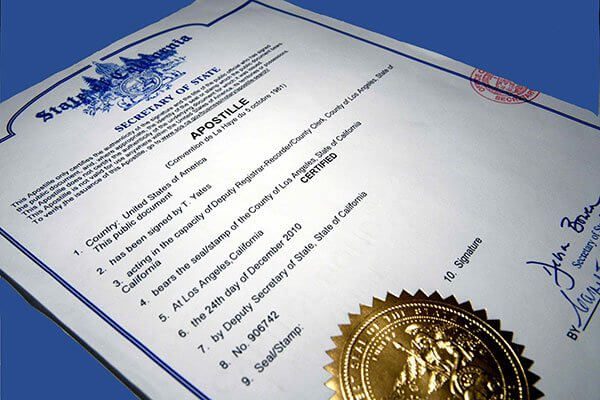Notarization vs. Apostille: Which Do You Need?

Ever need to get an official document recognized in another country? Whether it’s a birth certificate for applying for a visa or a diploma for pursuing further education abroad, navigating the process can seem daunting.
Two key steps you might encounter are notarization and apostilles. Both involve verifying documents, but they serve different purposes. Notarization focuses on making sure a document is legitimate within a single country, while apostilles are specifically designed for international use.
This article will break down the difference between notarization and apostilles, helping you understand which service you need to get your documents recognized on the global stage.
What is Notarization?
The first step you might encounter is notarization, performed by a notary public, such as Notary.co.uk. A notary public is an impartial official appointed by the state to witness signatures on documents, verify the signers’ identities, and ensure documents are signed willingly. They act as a credible third party, adding an extra layer of assurance to the document’s legitimacy and the signer’s intent.
The Notarization Process
When you get a document notarized, the notary will:
- Confirm your identity: They will ask for a valid government-issued ID to verify you are who you claim to be.
- Review the document: They will ensure the document is complete and free from any obvious alterations.
- Witness your signature: You will sign the document in the notary’s presence.
- Notarize the document: The notary will complete an official notary certificate, typically including their seal and signature, which is affixed to the document.
Commonly Notarized Documents
Notarization is often required for various documents used within a country, such as:
- Affidavits: Sworn statements about the truth of a matter.
- Powers of Attorney: Granting someone else legal authority to act on your behalf.
- Contracts: Agreements between parties requiring legal recognition.
- Real Estate Deeds: Documents transferring ownership of property.
- Last Will and Testaments: Ensuring the validity of your final wishes.
A notarized document carries additional weight within the legal system of the country where it’s notarized. The notary’s seal signifies that the signature and identity of the signer have been verified, adding a layer of credibility and reducing the risk of fraud.
What is an Apostille?
While notarization ensures a document’s validity within a country, for international use, you’ll likely need an apostille. An apostille is a standardized certificate attached to a public document. This document is issued by a competent authority that verifies the authenticity of the official’s signature and seal on the original document.
This verification process is streamlined thanks to the Hague Convention of 1961. Before the convention, documents often required a lengthy legalization process involving multiple government stamps and approvals from each country involved. The Hague Convention abolished this complex system for member countries, establishing apostilles as the sole method for authenticating public documents for use abroad.
Obtaining an Apostille
The process of obtaining an apostille typically involves these steps:
- Notarization: In most cases, the document needs to be notarized first. This verifies the signature and identity of the signer.
- Authentication: You then submit the notarized document to the designated authority in your country, usually the Secretary of State’s office or a designated agent, who will issue the apostille.
Documents Commonly Requiring Apostilles
An apostille is typically required for public documents used in another Hague Convention member country, such as:
- Birth certificates: Needed for applying for visas, registering children abroad, or claiming inheritance.
- Marriage certificates: Essential for proving marital status for immigration purposes or obtaining spousal benefits.
- Death certificates: Required for settling estates or managing international affairs.
- Educational diplomas and transcripts: Necessary for pursuing further education or seeking employment abroad.
- Commercial documents: Used for establishing business activities or contracts in another country.
By obtaining an apostille, you can ensure your documents are recognized and accepted by the authorities in the foreign country, saving you time and frustration in the process.
| Notarization | Apostille | |
| Purpose | Verifies the authenticity of a signature and identity of the signer within a country. | Verifies the authenticity of an official’s signature and seal on a notarized public document for international use. |
| Scope | Domestic use only (within the country where notarized). | International use (between Hague Convention member countries). |
| Process | Simpler, usually one appointment with a notary | Requires notarization first, then additional steps to obtain apostille |
| Cost | Typically lower | Can be slightly higher due to additional processing |
| Typical Documents | Affidavits, powers of attorney, contracts, real estate deeds, wills. | Birth certificates, marriage certificates, death certificates, educational diplomas, and commercial documents. |
Choosing Between Notarization and Apostille
While both notarization and apostilles involve verifying documents, they cater to distinct needs. Here’s a breakdown to help you choose the right service:
Similarities:
- Both add a layer of credibility to documents.
- Both involve witnessing signatures and verifying identities (notarization) or official seals (apostille).
The most important difference:
- Notarization: Verifies the authenticity of a signature and identity of the signer within a country (domestic use).
- Apostille: Verifies the authenticity of an official’s signature and seal on a notarized public document for international use between Hague Convention member countries (over 120 countries).
In rare cases, some countries might require additional legalization steps beyond an apostille. This typically involves getting the apostille further authenticated by the embassy or consulate of the destination country. It’s always best to consult the embassy or consulate of the country where you intend to use the document for their specific requirements.
Conclusion
Understanding the difference between notarization and apostilles is crucial when dealing with official documents. Notarization ensures a document’s validity within a country, while apostilles pave the way for international recognition. By considering the purpose and destination of your document, you can choose the appropriate service.
In summary:
- Domestic Use? Notarization is likely sufficient.
- International Use (Hague Convention country)? An apostille is the key to smooth document acceptance.
Consulting with a notary public or your local Secretary of State’s office is always recommended for specific requirements and procedures. With a clear understanding of these services, you can ensure your documents are properly verified and ready to be recognized on the global stage.





